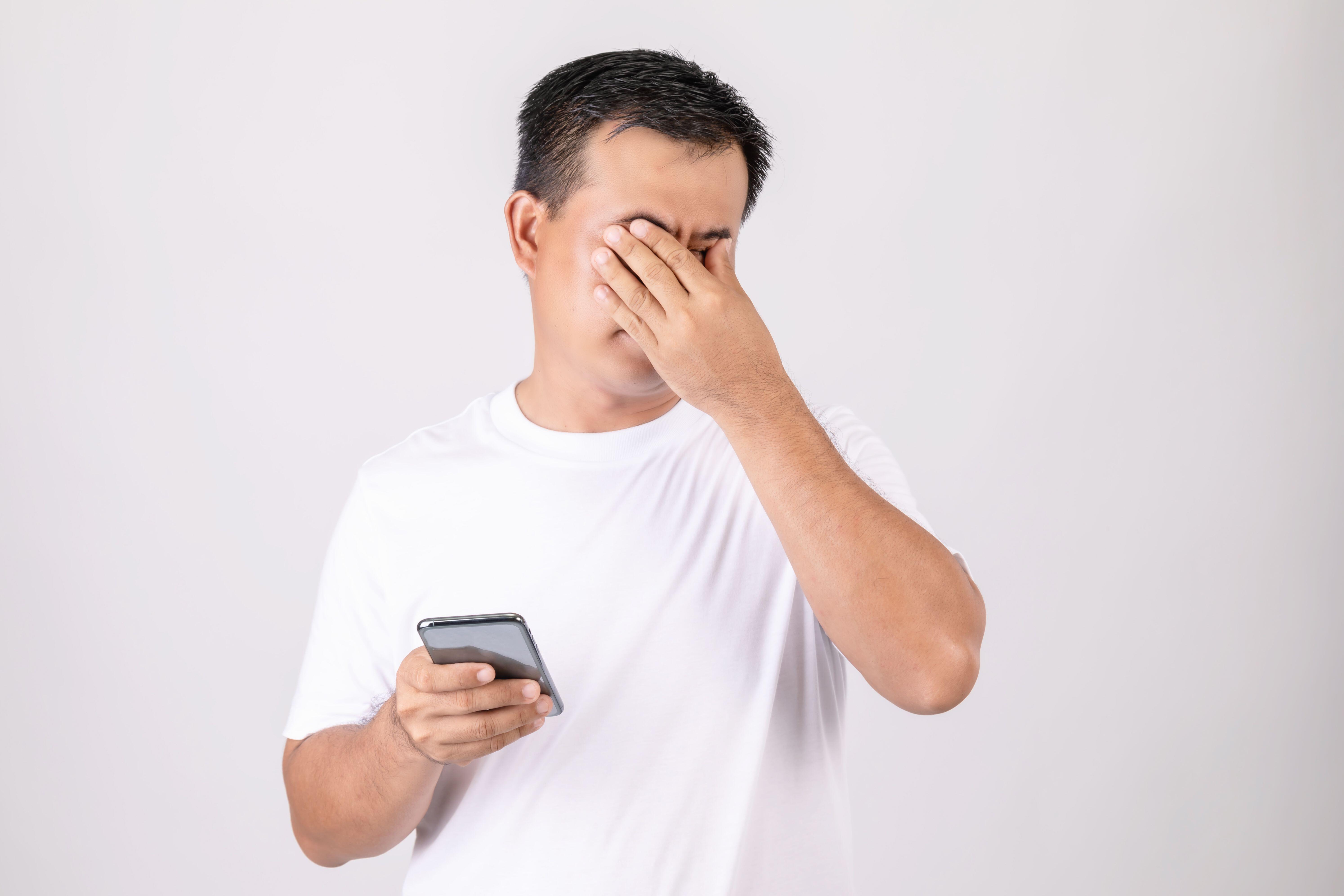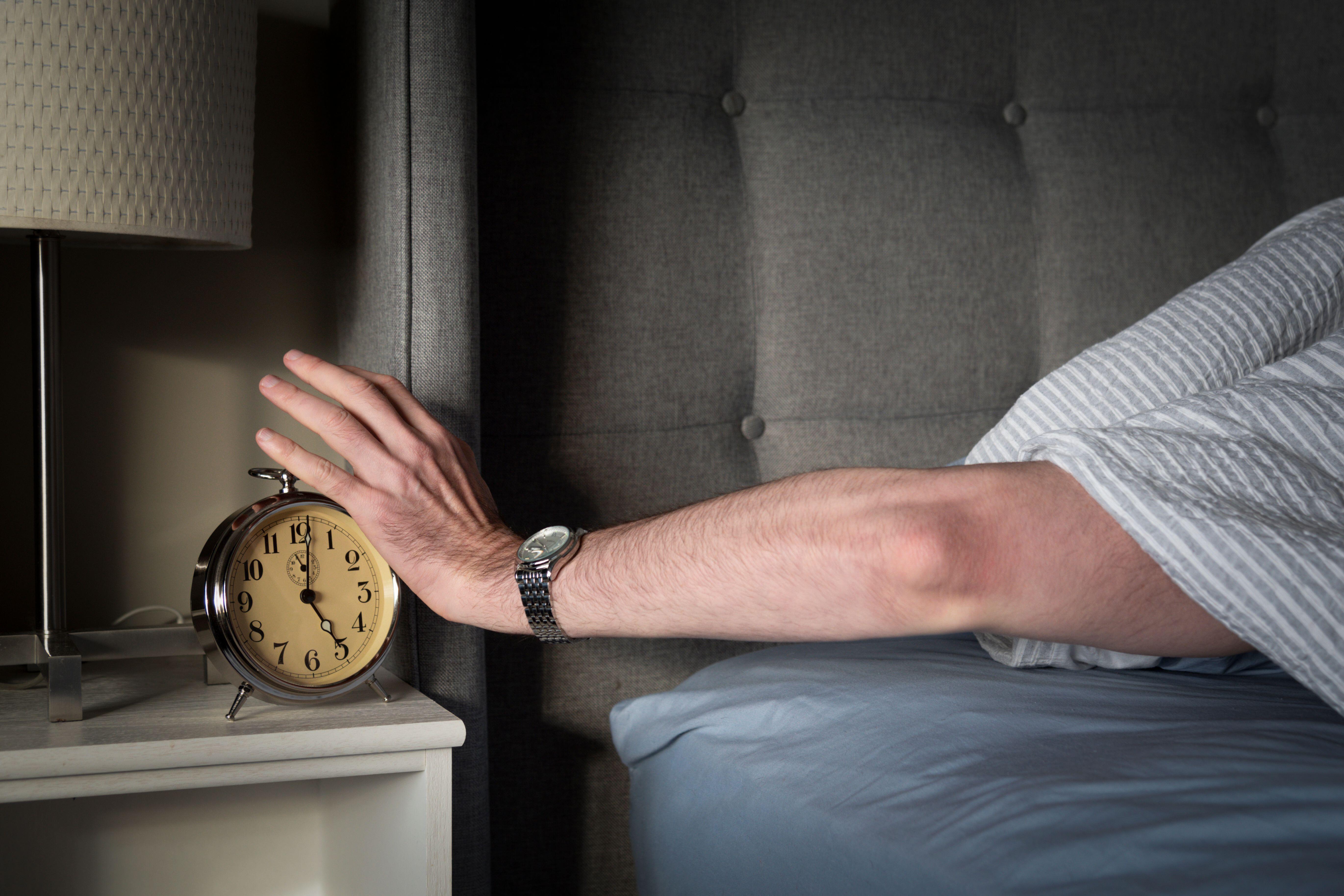What checking your phone first thing in the morning does to your brain
There is a spike in online traffic at 6am in the morning

Your support helps us to tell the story
From reproductive rights to climate change to Big Tech, The Independent is on the ground when the story is developing. Whether it's investigating the financials of Elon Musk's pro-Trump PAC or producing our latest documentary, 'The A Word', which shines a light on the American women fighting for reproductive rights, we know how important it is to parse out the facts from the messaging.
At such a critical moment in US history, we need reporters on the ground. Your donation allows us to keep sending journalists to speak to both sides of the story.
The Independent is trusted by Americans across the entire political spectrum. And unlike many other quality news outlets, we choose not to lock Americans out of our reporting and analysis with paywalls. We believe quality journalism should be available to everyone, paid for by those who can afford it.
Your support makes all the difference.That familiar morning ritual – bleary-eyed scrolling through Instagram feeds and X posts – might feel harmless, even productive.
But the habit could be subtly sabotaging your well-being.
As we head into 2025, prioritising screen-free mornings could be the key to unlocking a calmer, more focused you.
The immediate bombardment of information and blue light after waking can lead to mental fatigue before your day has even begun. Instead of gently easing into the day, your mind is forced to process a deluge of often irrelevant information, triggering a stress response and potentially contributing to anxiety.
This digital overload can also impair cognitive function, making it harder to concentrate and prioritize tasks later in the day.
New data shows that millions of us reach for their mobile phone as soon as they wake up – with spikes in network traffic detected immediately after 6am, 7am and 8am.
Millions of people pick up their phone on the hour – likely when most alarms are set for – and begin scrolling, Virgin Media O2 data suggests.
A separate survey for the operator found that more than a third of Britons (35 per cent) are planning to reduce their screen time as part of their new year’s resolutions.
Here we look at five reasons why you should stop using your phone first thing in the morning
1. Impacts brain functioning
“When you wake up, your brain is in a state called ‘sleep inertia’, a groggy transition between sleep and wakefulness. This is a delicate period when your cognitive functions are not yet fully restored,” explains Antonio Kalentzis, psychologist and British Psychological Society committee member.
“Grabbing your phone and flooding your brain with notifications, social media feeds, or emails overstimulates your prefrontal cortex, which is responsible for decision-making and impulse control.
“This barrage of information can lead to mental fatigue before you’ve even gotten out of bed, making your mind feel cluttered and less focused for the rest of the day.”
2. Disrupts your sleep cycle

“The blue light emitted by your phone suppresses melatonin production, a hormone crucial for regulating sleep,” says Kalentzis. “While the most significant damage is done at night, reaching for your phone in the morning reinforces a screen dependency that can disturb your natural sleep-wake rhythm.
“Beyond the light itself, stress-inducing notifications or emails can prematurely activate your stress response, cutting short the restful state your body needs to transition effectively into the day.”
3. Impacts mood

Browsing through social media can set a pessimistic emotional tone for the day.
“Whether it’s comparing yourself to someone’s highlight reel or reading distressing news, these interactions can trigger anxiety, stress, or even feelings of inadequacy,” points out Kalentzis. “Your morning is meant to be a time of renewal and grounding, but your phone often disrupts this, creating a ripple effect of negativity that can colour your entire day.”
4. Strains your eyes

“After hours of darkness during sleep, your eyes need time to adjust to light,” explains Kalentzis. “Exposing them immediately to the harsh brightness of a screen can cause discomfort, dryness, and irritation, which may persist throughout the day.
“Over time, this habit can contribute to chronic digital eye strain, a condition no one wants to deal with in today’s screen-saturated world.”
5. Can lead to procrastination
Morning phone use can be a productivity killer, sucking you into a vortex of distractions and sabotaging your focus before the day even begins.
“Instead of starting your day with intention and focus, you risk falling into the trap of passive consumption,” says Kalentzis. “Scrolling through endless posts or dealing with non-urgent emails slows your momentum and often leads to procrastination.
“The dopamine hit from this habit can make it harder to transition to more meaningful activities, setting a sluggish tone for the day and reducing overall productivity.”
Here are some useful tips to help you break the habit…
Charge your phone outside your room
“Breaking the habit doesn’t have to be difficult,” says Kalentzis. “Start by charging your phone outside the bedroom.”
Replace your phone alarm with a traditional alarm clock

“Avoid using your phone as an alarm as reaching for it first thing in the morning prompts you to start your day reading emails or scrolling the gram,” advises Hector Hughes, wellness expert and co-founder of digital detox escape cabin company Unplugged. “Try using a sunlight-simulating alarm clock, such as a Lumie. This helps your brain and body wake up more naturally, especially in darker mornings.”
Create a morning routine
“Develop a morning routine that excites you, whether it’s journaling, stretching, or going for a walk,” suggests Kalentzis. “Create space for proactive habits like exercising or simply enjoying a peaceful cup of coffee, all of which can set a positive tone for the day ahead.”
Remove social media apps from your home screen
“Delete the apps you don’t want to be habitually scrolling,” recommends Hughes. “It’s easy to re-download them if you want to check in, but removing them from your home screen will make it harder for you to open them in any idle moment.”
Try mindfulness

“If mindfulness appeals to you, practice a few minutes of deep breathing or meditation upon waking to centre yourself and reduce the urge to scroll,” suggests Kalentzis.